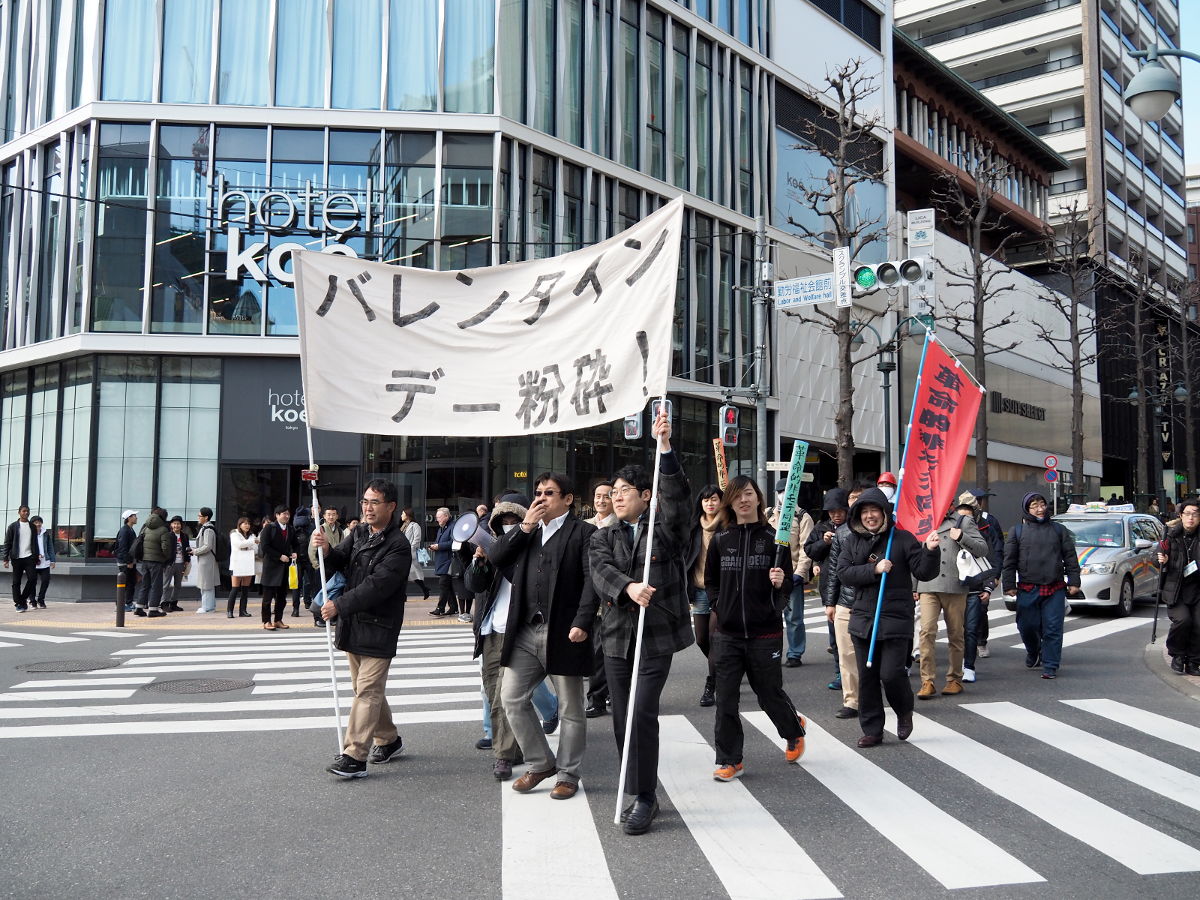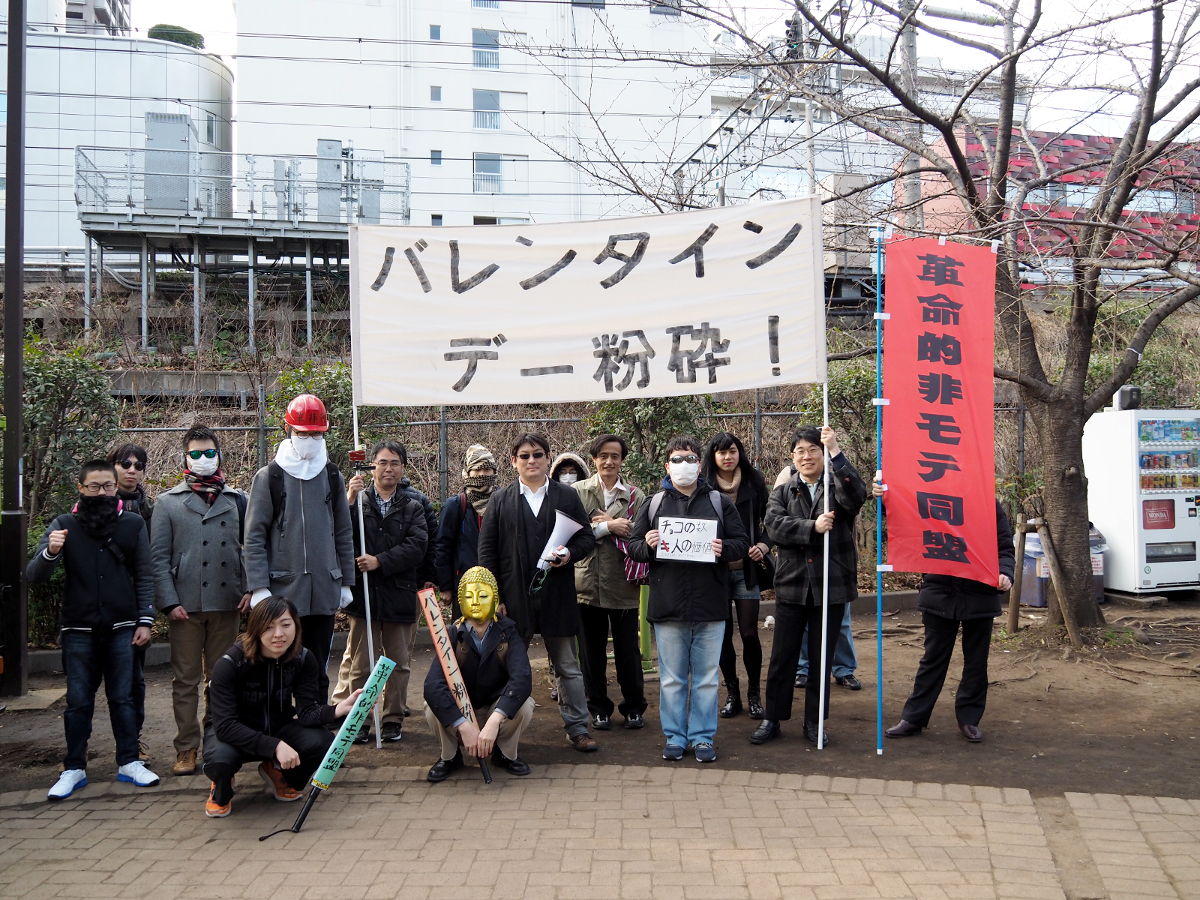The Folks Who Protest Valentine's Day In Japan
by Brian Ashcraft
On Valentine's Day in Japan, women traditionally give men chocolate. Each year, a group of protesters gathers to march, carrying signs that read "Pulverise Valentine's Day" and "Making out in public is terrorism".
On Valentine's Day in Japan, there is also a practice of "giri" (obligation) chocolate, with women feeling compelled to gift their male co-workers. Some offices have banned this practice because it might be stressful for the women and the men don't necessarily even want the chocolate. Increasingly, giri-chocolate has become inexpensive chocolate bars instead of pricey sweets.
A month later, men are supposed to give women sweets on White Day, which is on March 14, making both days one-sided.
The year, like every year since, Kakumeiteki Himote Doumei (or, loosely, "The Revolutionary League of Lonely Souls") gets together for Valentine's Day protests. This is not a large group, as evident in the photos, and not all the members are men. This year, women participated in the march, so the group is no longer just "unpopular" men.
Protest slogans include, "Resist romance capitalism!" and "Don't discriminate others on the number of times they have had sex!" as well as "Resist the opposition to otaku culture that can be enjoyed even if you don't have dates!"
"There is nothing sexist, misogynistic or offensive in the slogans per se, and the group's publicity warns participants against dabbling in provocations or discriminatory speech," writes William Andrews on the excellent blog Throw Out Your Books. "This is partly a policy of practical self-protection, and a common caution by protest organisers in Japan, since doing so can lead to legal troubles and result in a permit to march being denied the next time round."
As Throw Out Your Books also points out, it's hard to tell if this is serious or just a gag. But it's been going on since 2006, so the group's leaders must either be dedicated jokesters who enjoy the attention or truly want to pulverise Valentine's Day. Maybe it's a bit of both.
The group's official website has a listing still up for its most recent Valentine's Day protest, which was held this past Sunday in Shibuya. Why Sunday and not on the 14th? Probably because the revolutionaries have jobs and need to work. The protest was open to anyone who wanted to join, and before the march begins, organisers set aside some time for media interviews, which further underscores the notion that this is a gag or a stunt.
The group doesn't only protest Valentine's Day, but also White Day and Christmas, the last of which is, for many Japanese, a day for couples to go on dates. So, the group isn't protesting Christmas for religious reasons, but rather, dating ones.

This post was originally published 14/2/18.